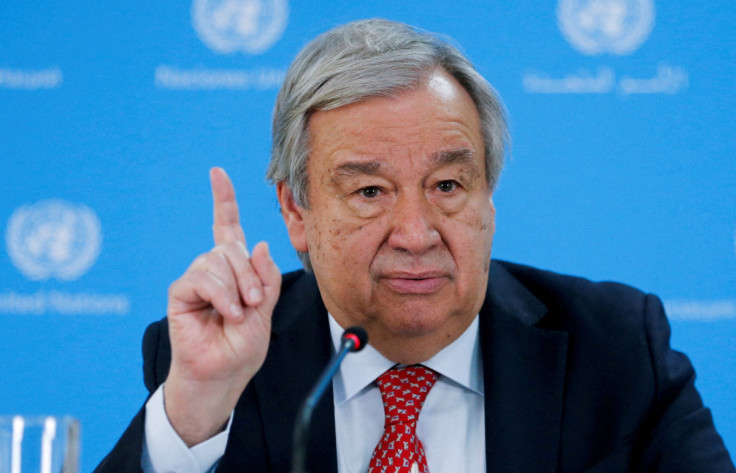United Nations Chief Urges Swift Action to Safeguard Against Unchecked AI Growth
Speaking at the World Economic Forum (WEF) meeting in Davos, Guterres drew parallels between the risks associated with AI and those posed by the climate crisis.

The United Nations Secretary-General, António Guterres, issued a stern warning at the World Economic Forum in Davos, urging immediate action to mitigate the risks associated with the unchecked growth of artificial intelligence (AI).
Guterres drew parallels between the risks posed by AI and the climate crisis, accentuating the lack of a coherent global strategy to address either issue.
Speaking at the event in Davos, Guterres expressed concerns over the relentless pursuit of profits by powerful tech companies, accusing them of showing a reckless disregard for human rights, personal privacy, and social impact.
He stated that every breakthrough in generative AI heightened the potential for unintended consequences, making it imperative for the international community to take decisive measures.
Referring to a recent report by the International Monetary Fund (IMF) that highlighted the likelihood of AI exacerbating inequality, Guterres challenged representatives of the tech industry in the audience to collaborate with governments in establishing safeguards for AI development.
He acknowledged the technology's potential for sustainable development but underscored the need for responsible governance.
Guterres said: "The IMF has just warned that it is very likely to worsen inequality. Powerful tech companies are already pursuing profits with a reckless disregard for human rights, personal privacy, and social impact."
While tech companies assert that they are implementing systems to prevent AI from being used for criminal or malicious purposes and insist that AI will create more jobs than it destroys, Guterres argued that these efforts were insufficient. He called for a concerted effort from governments and international bodies like the UN to ensure that AI becomes a force for good.
"My advisory body on AI has already made preliminary recommendations on AI governance that tap the benefits of this incredible new technology while mitigating its risks. We need governments urgently to work with tech companies on risk management frameworks for current AI development and on monitoring and mitigating future harms," emphasised Guterres.
He also stressed the importance of increasing access to AI, particularly for developing economies, and urged a collaborative effort to bridge the digital divide rather than exacerbate it.
The Chief Executive of OpenAI, Sam Altman, added his perspective to the discussion, highlighting the substantial energy demands that AI would impose in the future.
Altman argued that an energy breakthrough was essential to meet these demands and suggested that climate-friendly sources of energy, such as nuclear fusion or cheaper solar power and storage, were critical for the sustainable development of AI.
Altman's comments at the Davos event shed light on the environmental implications of AI development. As the technology continues to advance, the need for energy-efficient solutions becomes increasingly urgent to avoid exacerbating existing environmental challenges.
In addition to criticising the tech industry, Guterres took aim at fossil fuel companies for hindering progress on climate change. He accused them of launching multimillion-dollar campaigns to impede efforts to phase out fossil fuels, emphasising the inevitability of transitioning to renewable energy.
"The fossil fuel industry has just launched yet another multimillion-dollar campaign to kneecap progress and keep the oil and gas flowing indefinitely," Guterres said.
"Let me be very clear: the phase-out of fossil fuels is essential and inevitable. No amount of spin or scare tactics will change that. We must act now to ensure a just and equitable transition to renewable energy."
Guterres concluded his address by highlighting the pressing need for effective global strategies to tackle both the climate crisis and the rapid development of AI. Despite the extensive discussions on these issues, he lamented the apparent lack of power to take decisive action in the face of the serious threats posed by runaway climate chaos and AI development without proper regulations.
"In the face of the serious, even existential threats posed by runaway climate chaos, and the runaway development of AI without guardrails, we seem powerless to act," Guterres lamented.
© Copyright IBTimes 2025. All rights reserved.






















